Dishes and ingredients
Greek cuisine is known for its rich flavours, fresh ingredients and Mediterranean influences. It is a cuisine that draws on local products such as olive oil, fresh vegetables, fruit, fish, meat and cheese. Here are some of the characteristic dishes and ingredients of Greek cuisine:
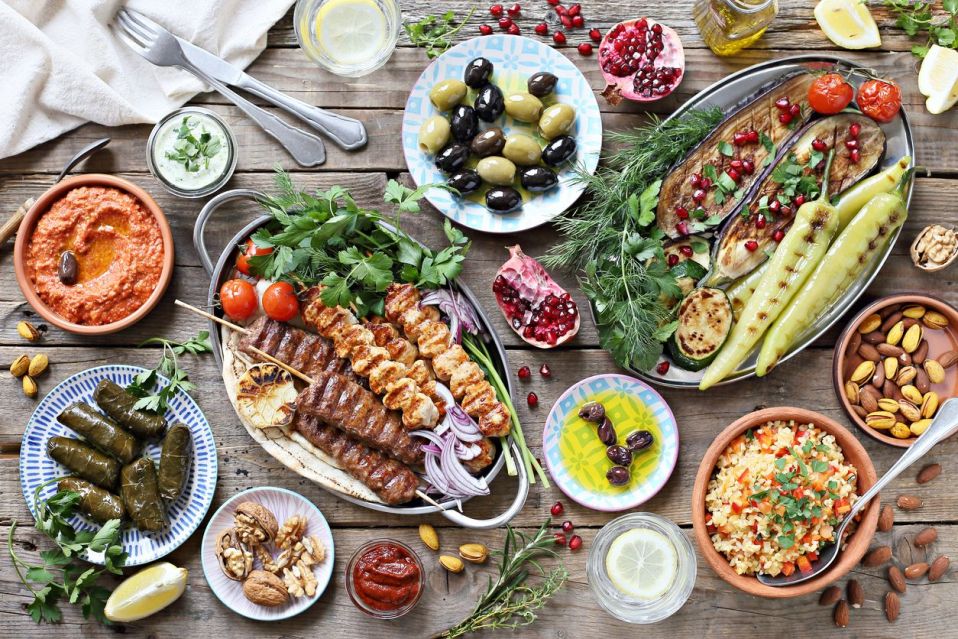
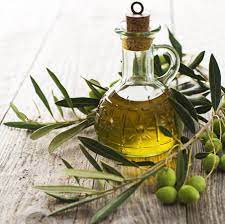
Olive oil: olive oil is an essential ingredient in Greek cuisine. It is used both for frying and as a dressing for salads. Greece is one of the main producers of olive oil in the world.
Vegetables: Greek cuisine is rich in fresh vegetables such as tomatoes, cucumbers, peppers, onions, aubergines, green beans and spinach. They are often used in salads, casseroles and hot dishes.
3. Gyros: This is a popular Greek dish consisting of a slice of meat (usually pork or chicken), served in thin pita bread with accompaniments such as tomatoes, onions, lettuce and tzatziki sauce.
4. moussaka: This is a distinctive Greek dish, similar to a casserole, consisting of layers of aubergine, minced meat (usually lamb or beef), potatoes, tomatoes and béchamel sauce. The whole thing is baked in the oven.
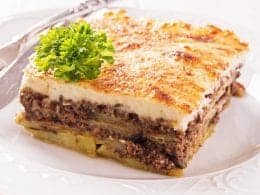
5. Souvlaki: This is a popular Greek dish that consists of pieces of meat (usually pork or chicken) pricked on sticks, grilled and served with tzatziki sauce, pita bread and salad.
6. taramosalata: This is a caviar paste with olive oil, lemon juice, onion and breadcrumbs. It is a popular Greek starter, often served with pita bread.
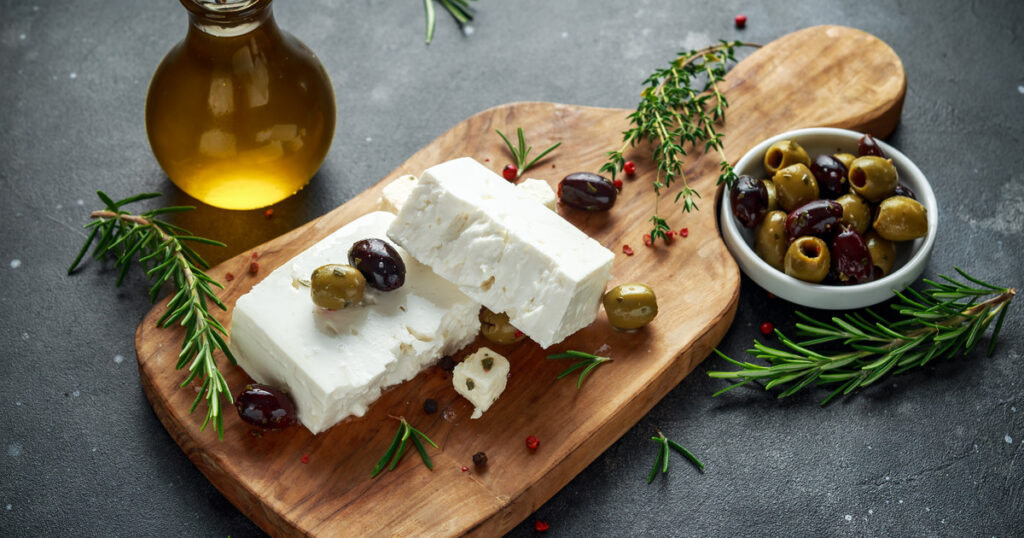
7. Feta: Feta is a traditional Greek cheese, made from goat’s or sheep’s milk. It is salty, creamy and goes well with salads, hot dishes and side dishes.
8. Baklava: This is a sweet, layered filo pastry with nuts, honey and aromatic spices such as cinnamon. Baklava is a popular dessert in Greek cuisine.
In addition to the dishes mentioned above, Greek cuisine offers many other tasty and distinctive dishes, such as dolmades (stuffed grapes or li
Traditions
Greek cuisine has a long history and rich culinary traditions. Here are some of the traditions associated with Greek cuisine:
Mezedes: Mezedes are traditional Greek starters that are eaten at social gatherings and celebrations. They are usually a variety of small dishes such as savoury meats, salads, cheeses, seafood and baked goods, served for sharing with others.
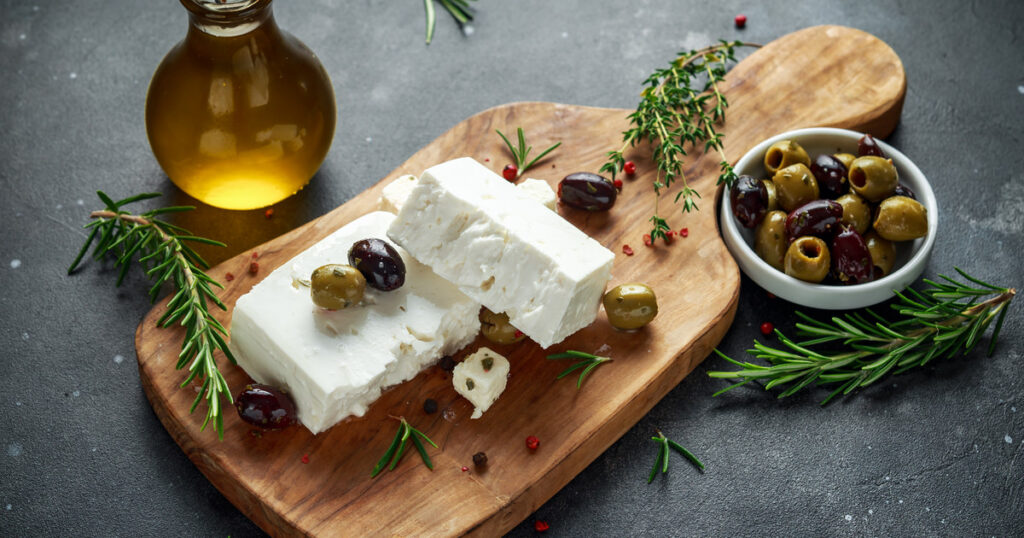
2. Greek coffee: Coffee is an important part of Greek culture. Greek coffee, called ‘ellinikos’, is brewed over a low heat in a special vessel called a ‘briki’. It is strongly brewed and served in small cups. Drinking coffee in company is an important social element in Greece.
3 Holidays and traditional foods: In Greek culture, many holidays are associated with traditional foods. For example, ‘Christopsomo’ (bread of Christ) and ‘Melomakarona’ (honey cookies with nuts) are eaten on Christmas Eve, and ‘Magiritsa’ (lamb soup) and ‘Tsoureki’ (sweet bread with egg) are popular at Easter.
4 Vegetable and fruit gardens: many Greeks have their own gardens where they grow vegetables, fruit, herbs and olives. Fresh, locally grown produce is often used in Greek cuisine, emphasising the importance of freshness and seasonality.
5. olive oil: Olive oil is an integral part of Greek cuisine and has a deep cultural significance. Greek oil is known for its high quality and is often used for cooking, salads and preparing sauces.
6. culinary festivals: Greece hosts a number of culinary festivals where you can taste traditional dishes and regional dishes. These festivals are an opportunity to celebrate Greek cuisine and culinary heritage.
These culinary traditions are an integral part of Greek culture and are passed down from generation to generation, contributing to the preservation and promotion of the unique and tasty Greek cuisine.


